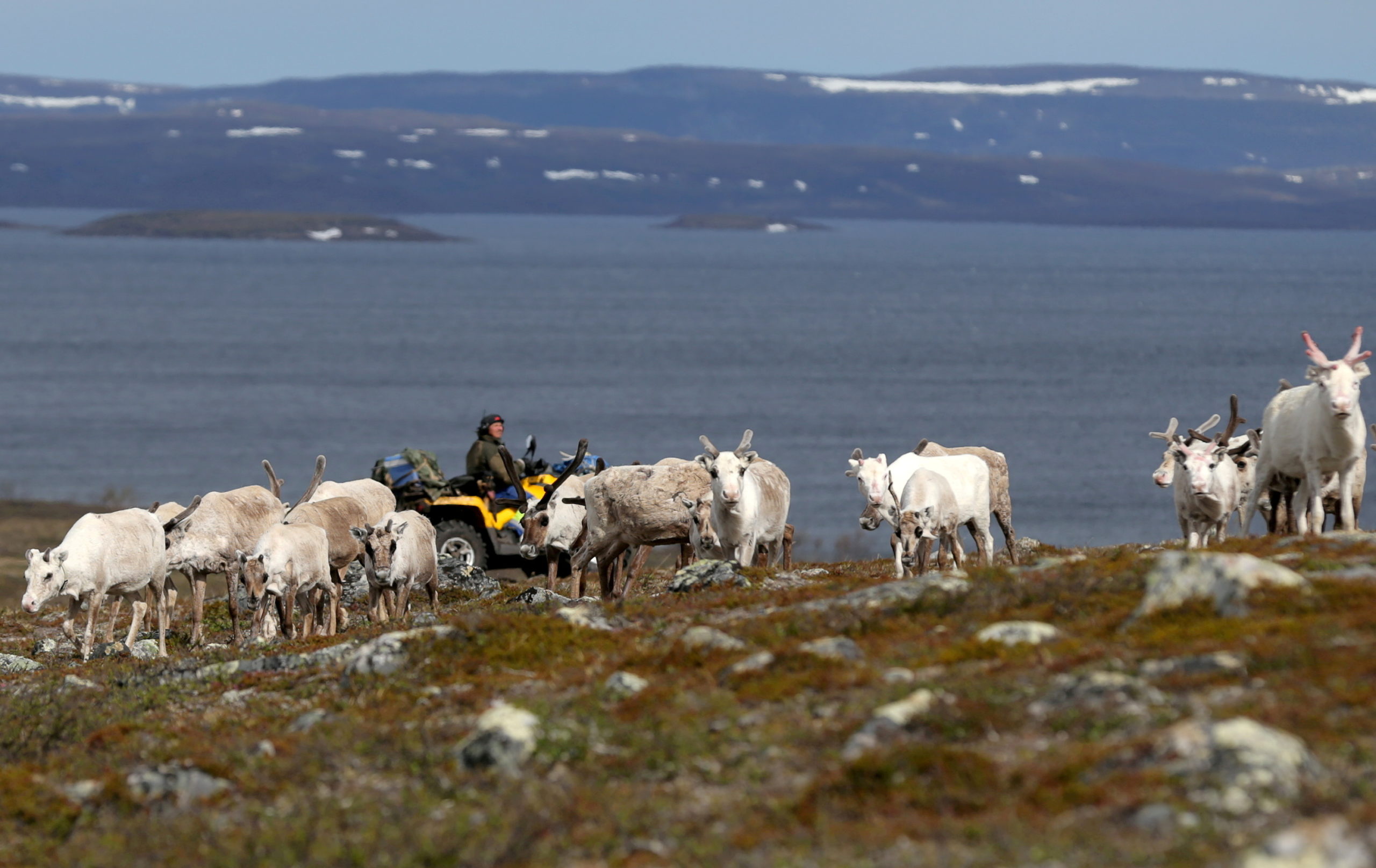The future is unclear for Norway wind turbines ruled a threat to Sámi reindeer herder’s rights
In a landmark ruling last month, a court stripped the wind farms of their licenses. Now Sámi herders want to see the turbines come down.

OSLO — Norway faces hard choices over the future of two major wind farms stripped of their licenses for jeopardizing the way of life of Sámi reindeer herders, but it remains unclear whether they should be dismantled, the energy minister said.
While herders in the Fosen region of coastal central Norway have called for the giant machines to be removed and the landscape restored, the owners said they hope to apply for a new license that would not violate Sámi rights.
“This is a quite complex case both legally and politically,” Minister of Petroleum and Energy Marte Mjoes Persen told Reuters on Tuesday after meeting with lawyers for Sámi communities.
“It’s important to emphasize that the government has a responsibility under international law for the legal rights of Sámi interests,” she said.
Reindeer herders in the Nordic country argue that the sight and sound of giant wind turbines frighten their animals grazing nearby and thereby jeopardize age-old traditions.
Norway’s supreme court unanimously ruled on Oct. 11 that the construction of the Storheia and Roan wind farms in Fosen had violated the herders’ cultural rights set by international conventions, and that the operating permits were thus invalid.
But the court did not spell out what should happen next to the 151 turbines or to the dozens of kilometers of roads built to facilitate their construction, and the wind farms therefore remain in operation for the time being.
[Two Norway wind farms lose their licenses in a landmark Indigenous rights ruling]
Norway, western Europe’s biggest oil and gas producer, aims to boost its output of renewable energy, such as wind power, in preparing for a transition towards a greener economy.
Persen plans a trip to the Fosen area to meet with herders and is not ruling out any outcome, including dismantling the turbines, part of a wider $1.13 billion development that has become Europe’s largest onshore wind farm.
“That could be one of several solutions…, but there may also be other outcomes,” she said. “We need a thorough process. It’s premature to say that one thing or another will happen.”
Lawyers representing the herders said their clients saw one only possible option: a removal of the turbines.
“We are a little disappointed that (Persen) was not more concrete about what needs to be done to address this breach of human rights that goes on every day,” lawyer Jon-Andreas Lange told Reuters after meeting the minister.
“At the same time, the minister appears willing to go quickly into this case…, and she promises that international law is (to be) applied in Fosen,” Lange said.
Direct and indirect owners of the wind farms include Germany’s Stadtwerke Muenchen and Swiss BKW, as well as Fosen Vind, Statkraft, TroenderEnergi, Nordic Wind Power, Energy Infrastructure Partners and Roan Vind.